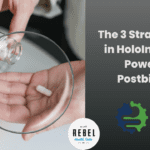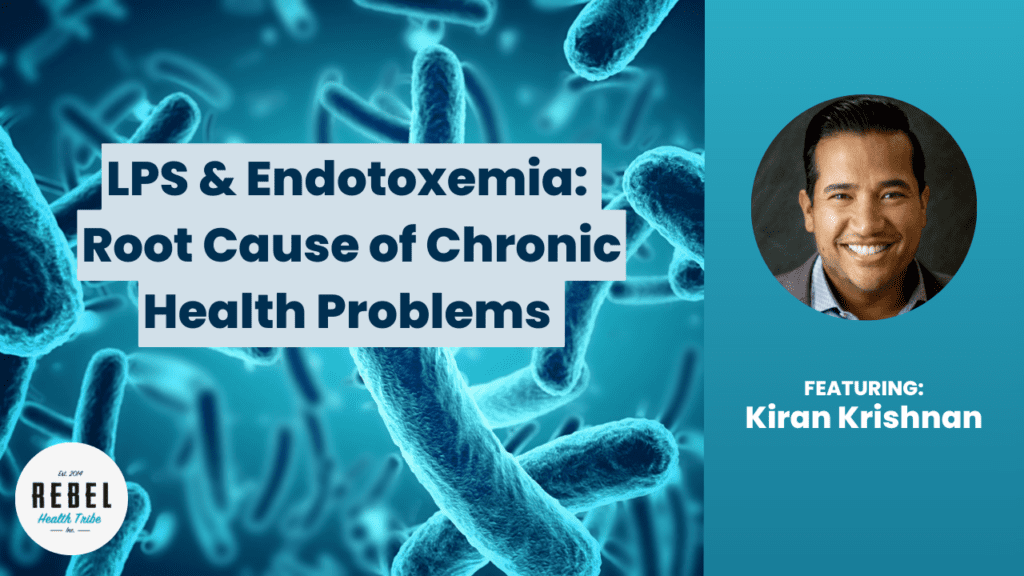
Play Video
LPS & Endotoxemia: Root Cause of Chronic Health Problems
Webinar Transcript
Kiran Krishnan:
So here’s a bunch of other things. Leptin resistance. When this LPS is allowed to get into your enteric nervous system, that enteric nervous system is a nervous system that covers your entire digestive tract. It has some of the most dense nerve endings, even compared to the spinal cord itself. And so it’s a really, really elaborate and significant neuronal system. And when LPS enters that neuronal system and disrupts the neuronal signaling, you end up with a gut brain communication disruption, which can lead to things like leptin resistance. Leptin resistance means that you end up gaining weight more easily because one of the things that leptin is supposed to do, once you eat food, leptin increases in concentration because your microbiota produces signals, like short chain fatty acids, to get your body to produce more leptin.
As leptin increases than what you start to see is your satiety starts to increase and hunger goes way down. So it forces you to stop eating. But when leptin is not functioning when we are immune to the response of leptin because of continuous overeating, continuous leaky gut, continuous inflammation, and the disruption between the gut brain connection, we tend to chronically overeat and end up with metabolic syndrome and obesity. Chronic constipation works the same way. That enteric nervous system also controls your bowel movements. And so if the enteric nervous system is shot and not allowed to function the way it’s supposed to, your bowels aren’t going to move the way they’re supposed to. Mood and appetite disorders. It can also disrupt ghrelin, which is the hunger hormone. Also dopamine in the case of depression. So this LPS can actually get into parts of your brain where it interferes with dopamine receptors.
So you don’t have that neurological response or dopamine, other cognitive declines because they can cross a blood brain barrier and cause inflammation in that region itself, which causes cognitive decline. You can cause loss of memory by entering places like the hippocampus and the amygdala and causing inflammation in those deep recesses of the brain. Those deep areas control things like memory. And so when inflammation sets in, in those areas of the brain, you’re going to have issues with memory recall and ability to understand things, analytical thinking and so on. Depression, it can be triggered through disruption of serotonin turnover. Anorexia nervosa also through serotonin turnover in the synapsis of the CNS. Anxiety, which it can do through messing up the HPA axis, the Hypothalamic Adrenal Pituitary axis, increasing the expression of corticosteroid releasing hormones. So you end up with more stress hormones in response to everyday things and that can create severe anxiety, chronic pain.
It can actually get into neurons, into these things called nociceptors and trigger pain signals, which a lot of people who suffer from severe inflammation and illness, they also end up with chronic non-specific pain. Parkinson’s disease. I mentioned Alzheimer’s. This is also the major inducer of Parkinson’s disease. Intracranial LPS. So migrating from the lumen of the gut, past the barriers, into the circulatory system, and entering the cranium and can cause microglia activation, so immune cell activation, that ends up causing neuronal loss and that leads to the onset of Parkinson’s. Hypogonadism, low testosterone in men, high levels of serum LPS associated with low testosterone, and of course autoimmune disease like we talked about as well.

Kiran Krishnan
About our Guest
Kiran Krishnan is a Research Microbiologist and has been involved in the dietary supplement and nutrition market for the past 17 years. He comes from a strict research background having spent several years with hands-on R&D in the fields of molecular medicine and microbiology at the University of Iowa. He left University research to take a position as the U.S. Business Development and Product Development lead for Amano Enzyme, USA. Amano is one of the world’s largest suppliers of therapeutic enzymes used in the dietary supplement and pharmaceutical industries in North America. Kiran also established a Clinical Research Organization where he designed and conducted dozens of human clinical trials in human nutrition.
Kiran is also a co-founder and partner in Nu Science Trading, LLC.; a nutritional technology development, research and marketing company in the U.S. Dietary Supplement and Medical Food markets. Most recently, Kiran is acting as the Chief Scientific Officer at Physician’s Exclusive, LLC. and Microbiome Labs. He has developed over 50 private label nutritional products for small to large brands in the global market. He is a frequent lecturer on the Human Microbiome at Medical and Nutrition Conferences. He conducts the popular monthly Microbiome Series Webinars through the Rebel Health Tribe Group practitioner training program, is an expert guest on National Radio and Satellite radio and has been a guest speaker on several Health Summits as a microbiome expert. He is currently involved in 9 novel human clinical trials on probiotics and the human microbiome.
Kiran is also on the Scientific Advisory Board for 5 other companies in the industry. Kiran offers his extensive knowledge and practical application of the latest science on the human microbiome as it relates to health and wellness.







